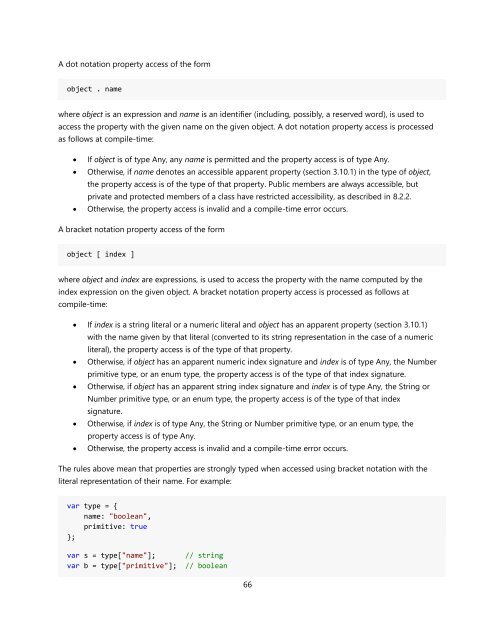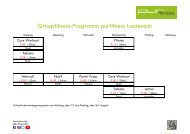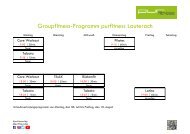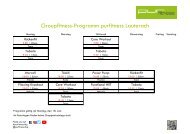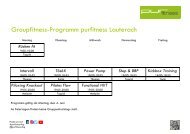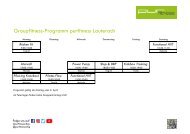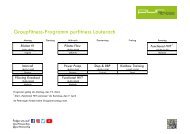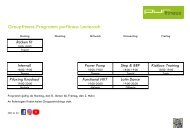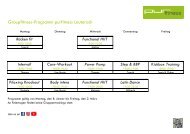TypeScript Language Specification v1.5
TypeScript Language Specification v1.5
TypeScript Language Specification v1.5
Create successful ePaper yourself
Turn your PDF publications into a flip-book with our unique Google optimized e-Paper software.
A dot notation property access of the form<br />
object . name<br />
where object is an expression and name is an identifier (including, possibly, a reserved word), is used to<br />
access the property with the given name on the given object. A dot notation property access is processed<br />
as follows at compile-time:<br />
<br />
<br />
<br />
If object is of type Any, any name is permitted and the property access is of type Any.<br />
Otherwise, if name denotes an accessible apparent property (section 3.10.1) in the type of object,<br />
the property access is of the type of that property. Public members are always accessible, but<br />
private and protected members of a class have restricted accessibility, as described in 8.2.2.<br />
Otherwise, the property access is invalid and a compile-time error occurs.<br />
A bracket notation property access of the form<br />
object [ index ]<br />
where object and index are expressions, is used to access the property with the name computed by the<br />
index expression on the given object. A bracket notation property access is processed as follows at<br />
compile-time:<br />
If index is a string literal or a numeric literal and object has an apparent property (section 3.10.1)<br />
with the name given by that literal (converted to its string representation in the case of a numeric<br />
literal), the property access is of the type of that property.<br />
Otherwise, if object has an apparent numeric index signature and index is of type Any, the Number<br />
primitive type, or an enum type, the property access is of the type of that index signature.<br />
Otherwise, if object has an apparent string index signature and index is of type Any, the String or<br />
Number primitive type, or an enum type, the property access is of the type of that index<br />
signature.<br />
Otherwise, if index is of type Any, the String or Number primitive type, or an enum type, the<br />
property access is of type Any.<br />
Otherwise, the property access is invalid and a compile-time error occurs.<br />
The rules above mean that properties are strongly typed when accessed using bracket notation with the<br />
literal representation of their name. For example:<br />
var type = {<br />
name: "boolean",<br />
primitive: true<br />
};<br />
var s = type["name"]; // string<br />
var b = type["primitive"]; // boolean<br />
66


